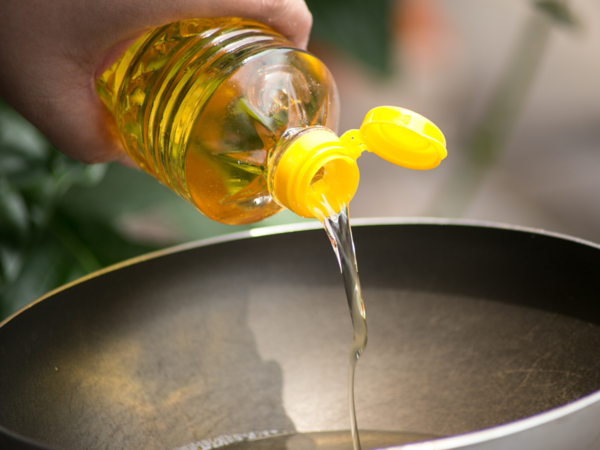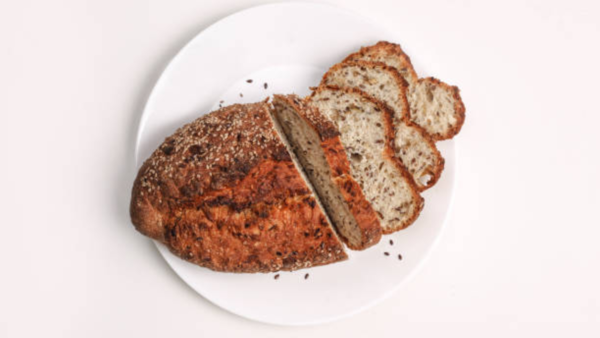While diligently reading food labels is a commendable practice, it's often insufficient to protect your health. Many seemingly innocuous store-bought foods harbor hidden ingredients that can wreak havoc on your well-being. Let's uncover some common culprits lurking in your pantry and understand why they pose a risk.

Food dyes are ubiquitous, adding vibrant colors to everything from candies to flavored rice. While visually appealing, these synthetic additives, such as Red 40 and Yellow 5, may carry significant health risks. Studies suggest a link between artificial food dyes and neurobehavioral issues, particularly hyperactivity in children. In a recent move, the US Food & Drug Administration (FDA) banned Red No. 3, a dye imparting a bright cherry-red hue to foods and beverages, due to its association with cancer. Despite this ban, Red No. 3 continues to be used in several countries.

Titanium dioxide is a chemical used to whiten foods like coffee creamers, candies, sunscreen, and toothpaste. This additive is categorized as a Group 2B carcinogen by the FDA. The nanoparticles present in titanium dioxide may induce inflammation and oxidative stress within the body.
Brominated vegetable oil (BVO) acts as an emulsifier in citrus-flavored drinks, preventing flavor oils from separating. However, research indicates potential links between BVO consumption and neurological problems, thyroid dysfunction, as well as heart and liver damage. Although banned in Europe and the US, BVO remains in use in other countries.

Potassium bromate is a flour additive used to strengthen dough in bread-making. The World Health Organization classifies it as a possible human carcinogen. This ingredient is banned in Europe, Canada, and other regions due to its association with kidney and thyroid tumors in animals, as well as its nephrotoxic effects in both animals and humans.

High fructose corn syrup (HFCS) is a sweetener prevalent in sodas and snacks. It is a leading contributor to obesity and diabetes. Studies suggest that HFCS intake disrupts metabolism, leading to increased fat storage and insulin resistance. From sugary beverages to processed foods, HFCS is a pervasive ingredient to watch out for.
Newer articles
Older articles
 Black Caps Set for Blockbuster Home Summer Against Cricket Heavyweights: Australia, England, West Indies, and South Africa to Tour New Zealand
Black Caps Set for Blockbuster Home Summer Against Cricket Heavyweights: Australia, England, West Indies, and South Africa to Tour New Zealand
 Gavaskar Calls for Kuldeep Yadav's Inclusion in 2nd Test Amid Bumrah Fitness Concerns, Cites Birmingham Pitch Conditions
Gavaskar Calls for Kuldeep Yadav's Inclusion in 2nd Test Amid Bumrah Fitness Concerns, Cites Birmingham Pitch Conditions
 Stokes Praises England Openers' Key Role in Record-Breaking Chase Against India
Stokes Praises England Openers' Key Role in Record-Breaking Chase Against India
 Former Selector Blasts India's Fielding Lapses After Test Defeat to England; 'Simple Catches Cost Us'
Former Selector Blasts India's Fielding Lapses After Test Defeat to England; 'Simple Catches Cost Us'
 5 Warning Signs of Prediabetes You Might Be Missing
5 Warning Signs of Prediabetes You Might Be Missing
 Gambhir Stands by India's Lower Order Despite Test Collapse; Cites Missed Catches as Key Factor
Gambhir Stands by India's Lower Order Despite Test Collapse; Cites Missed Catches as Key Factor
 Nitish Rana Set for Delhi Comeback After Disappointing Uttar Pradesh Spell
Nitish Rana Set for Delhi Comeback After Disappointing Uttar Pradesh Spell
 India's First Dengue Vaccine: Phase 3 Trials Approach Finish Line, Promising Hope Against Deadly Virus
India's First Dengue Vaccine: Phase 3 Trials Approach Finish Line, Promising Hope Against Deadly Virus
 Rishabh Pant's Unorthodox Batting Revolutionizing Cricket, Claims Greg Chappell
Rishabh Pant's Unorthodox Batting Revolutionizing Cricket, Claims Greg Chappell
 Mirabai Chanu Reveals Constant Weightlifting Pressure: Training and Diet Consume Her Thoughts, Even With Family
Mirabai Chanu Reveals Constant Weightlifting Pressure: Training and Diet Consume Her Thoughts, Even With Family